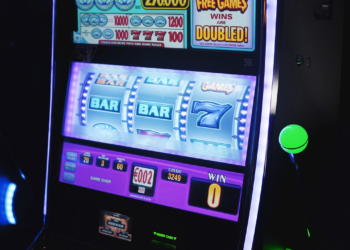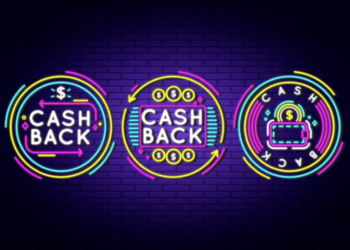Is Artificial Intelligence (AI) about to beat slot machines? AI has already transformed countless industries, and some believe it may one day predict the outcomes of online slots. That prospect would leave casino operators scrambling for answers. Slots are the most popular casino games—both in land-based venues and online, including UK casinos online—with tens of thousands of titles. Despite their varied themes and styles, the core gameplay remains random and unpredictable. If AI could somehow forecast results, it would upend the entire casino landscape. In this article, we examine whether that’s actually possible.
Understanding Slot Machines: History and Basic Mechanics
Slots are games that involve spinning reels and symbols. The goal is to match symbols on a pay line to trigger a payout or unlock bonus features. This core gameplay has remained remarkably similar from the first Liberty Bell slot machine in 1895 to the latest and greatest online slots.
Beyond the Surface: The Internal Mechanics of Slot Machines
Return-to-Player (RTP): The Long-Term Payback to Players
RTP (or Return to Player) is a percentage number assigned to all slot games that offers a basic measurement for how much the game pays back for money spent by players. A good example is the online slot average RTP of 96%, which shows that for every $100 you spend in wagers, the game pays back $96 on average over time. While it can be a helpful tool, games calculate the RTP over millions of spins, meaning it likely will not work for single spin predictions.
Volatility in Slot Machines: Balancing Risk and Reward
Each slot game requires you to weigh up risk vs potential reward, and not all slots are equal. Volatility measures how much risk a game has: low, medium, or high.
- Low Volatility: A game that has regular wins that have smaller payouts. These slots usually appeal to casual or beginner players.
- Medium Volatility: A good balance between win frequency and the size of the payout.
- High Volatility: Slots that typically have the potential for big payouts but will not deliver as many wins. You will need to take more risks, making them ideal for high rollers.
Randomness and Regulation: How Slot Outcomes Are Determined
At the heart of any slot machine is a Random Number Generator (RNG), software that ensures every spin is independent and the outcome is random. An RNG works by generating number sequences at all times, even when the game is inactive. When a player spins the reels, the RNG selects one of these random numbers and locks it.
Therefore, this means the result is known before the reels stop spinning, with the reels simply serving as visual entertainment for the player. Slot software providers maintain trust and transparency by allowing their games and RNG software to go through independent testing by certification labs and gambling authorities. These regulations guarantee that slot outcomes remain random, unbiased, and impossible for players, casinos, or software developers to manipulate.
Artificial Intelligence and Slot Machines: Capabilities and Limitations
AI has rapidly transformed many industries, often reshaping how we interact and navigate work and play. Even with its increasing power, artificial intelligence cannot predict the outcome of slot games. Because of these games’ randomness, there is a clear barrier that prevents accurate predictions from AI.
The RNG means that there is no history or tracking of past results to inform future outcomes. Every spin is random and unpredictable, while the result is only known once the player triggers the spin. Therefore, this means AI has no pattern to anticipate or data to track.
So sure, prediction is impossible, but what about the manipulation of the RNG to influence results? While theoretically more plausible, there is one big barrier: access. Slot games and software providers use heavy encryption technology to protect their source code, which is not accessible to the public. In other words, AI systems do not have access to the underlying code of the RNG.
While AI can analyze player behavior, betting trends, or surface-level game data, this should not be confused with outcome prediction. Pattern analysis may offer insights into how players interact with games, but it cannot breach the unpredictability built into slot mechanics.
Common Misconceptions About Slot Machines: Myths vs. Reality
To give you a better understanding of slots and their random nature, let’s bust some myths:
Myth: Players Can Influence Outcomes
Some players think that playing a game at a certain moment or using a certain strategy can influence the outcome. In reality, all spin results come from the RNG, which delivers independent and instant results. Timing or “strategy” has no effect.
Myth: Slots Go Cold After Big Wins
You may hear that you should avoid a slot game immediately after a large payout. However, slot results do not rely on past outcomes. Every spin is independent, so the statistics of win or loss potential are exactly the same, regardless of previous results.
Myth: Slot Machines Are Rigged
Reputable online casinos and legitimate software providers are under tight regulatory control. Games go through independent testing to ensure they are fair, including random results. Casinos must meet compliance laws to operate legally. Rigging games is highly illegal and unlikely to happen at a licensed casino.
Myth: Casinos Control Winning Spins Manually
Online casinos, or even land-based venues, have no control over the RNG of a slot game. Casino staff cannot change the potential outcome of a game. Slots are pre-programmed, and trying to tamper with the software is a serious violation of regulations.
Conclusion: The Limits of AI in Predicting Games of Chance
In summary, artificial intelligence cannot predict the results of slot machines and will probably never be able to. Because these games use RNG software, encryption, and strict regulations, there are barriers that AI cannot overcome. The core randomness of slots means that all results are unpredictable and fair. Instead of looking to AI to solve slot games, consider choosing slots with a favourable RTP and volatility, balancing your risk and reward based on your budget.













































































